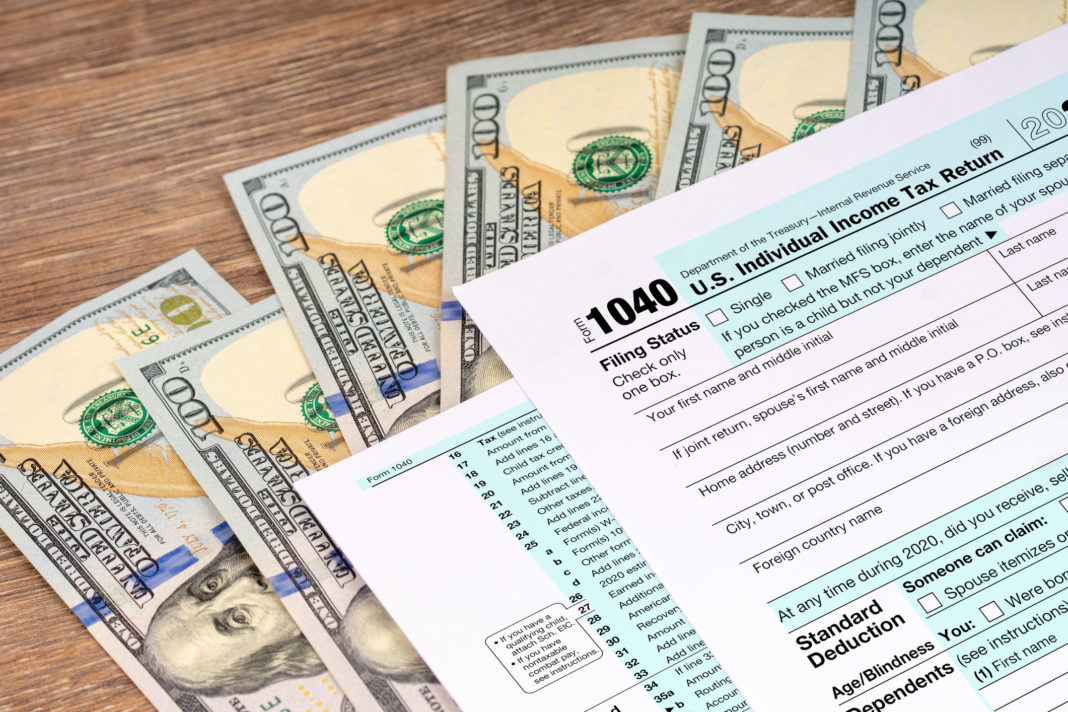Tax filing season began for IRS Free File users on January 14th; for everyone else it starts January 24. This means criminals have 1.) already begun filing fake returns and 2.) are planning to do more of the same in the months to come.
One of the best ways to head off trouble at the pass is to create an account on IRS.gov and get your annual PIN code, which let’s the IRS know you’re you.
How do you know your tax return has been targeted? You may receive a letter from the IRS asking about a suspicious return. If you are e-filing, the return will be rejected with a message stating that a return has already been filed associated with your Social Security number, you may get a notice via email that an account has been created in your name, or you could receive a tax transcript in the mail that you never requested. This IRS provides an up-to-date list of all the ways you may discover tax-related fraud.
As we trudge towards Tax Day 2022, you need to be on the lookout for tax-related crime. Here are the main ways scammers work:
- Good old-fashioned identity theft: The most common tax scam is also the most straightforward: A scammer uses your Social Security number to file a phony return in your name. With easy access to millions of Social Security numbers on the dark web, all that’s needed is to file a tax return before you do (and a general lack of ethics) to make a quick buck.
Takeaway: Don’t wait until the last minute to file your taxes. Consider a credit monitoring service to let you know of any financial activity in your name.
- Phony IRS Representatives: Scammers will often call or email their targets claiming to be acting on behalf of the IRS. The story varies, but the gist is that there’s a problem with your taxes, and the only way to resolve it is to confirm your Social Security number, payment information and personal data. This gives the scammer everything they need to file a phony claim in the victim’s name and collect a tax refund, not to mention other forms of identity theft. What makes this approach especially foul is that scammers often target the economically vulnerable, who are more likely to panic when they hear that there’s an issue with their taxes.
Takeaway: The IRS will only contact you by mail at first. Never give away personal or sensitive information over the phone or email to an unsolicited call claiming to be acting on their behalf.
- Tax debt resolution scams: Scammers and shady companies will often look through tax lien notices to find people who are unable to pay their taxes. Promising that their legal and accounting teams can resolve their debt “for pennies on the dollar,” and eliminate tax penalties and interest, they request an upfront payment and then disappear. Takeaway: In most cases, you can only extend the amount of time you have to pay to the IRS. Be skeptical of anyone claiming they can reduce the amount owed. When approached by a service provider, check with the Consumer Protection and Better Business Bureaus to see if any complaints have been filed against the company.
- Fake charity tax scams: Did you donate funds on Giving Tuesday or during the lead up to New Years Eve?
Covid has created financial hardship across the country and around the world. One way to help is by donating to a good cause. Unfortunately, scammers are taking advantage of people’s good nature by creating phony charities to collect supposedly “tax deductible” donations. Worse, it’s a one-two punch: Not only do you get fleeced by a scammer, you can also be charged with federal income tax fraud for claiming a fraudulent deduction.
Takeaway: Do your homework before donating to a charity. Confirm that it’s a legal and tax-exempt organization before making a donation.
- The ghost preparer scam: Identifying a ghost preparer is easy: He or she doesn’t sign the return prepared for their client. This means the client is responsible for any incorrect or fraudulent information on that claim. Ghost preparers often charge high upfront fees, promise large tax returns and include multiple fake deductions to inflate the value of the tax refund. Some will even direct the refunds into their own bank accounts rather than those of the client.
Takeaway: Your tax preparer should always sign the return. Always get a receipt from your tax preparer. Review your returns carefully and look for phony or exaggerated deductions. Also make sure that your tax refund will be sent to you and not your tax preparer.
- Economic impact payment scams: Many of us have received economic impact payments from the federal government to offset the financial distress caused by the Covid pandemic. Scammers target this money by calling, texting, or emailing recipients and asking them to “confirm their payment details.” With the bank account information, a scammer will then attempt to siphon money from their victims’ accounts.
Takeaway: Never provide payment information or any other financial data to unsolicited callers, texts or emails.
- Fake IRS letters: Many of us know the IRS only communicates via snail mail, but this doesn’t mean every letter from the IRS is authentic. Scammers will often send threatening-sounding letters claiming that the recipient owes delinquent taxes or penalties.
Takeaway: Check and double-check the letter. Is it in the form of an official 5071C, 5747C, 6331C, 5447C, 4883C, or 6330C? Check the contact information and confirm that it matches what’s on IRS.gov. Before you send information or a payment, call your local IRS office to confirm the letter is legitimate. - The Bureau of Tax Enforcement Scam: Scammers will often call on behalf of “The Bureau of Tax Enforcement” informing their target of a lien or levy on their assets. There’s no such bureau or agency.
Takeaway: Do a quick Google search for the message you receive. Many websites will list full transcripts of scam calls. (Check to see if the bureau or agency contacting actually exists while you’re at it.)










